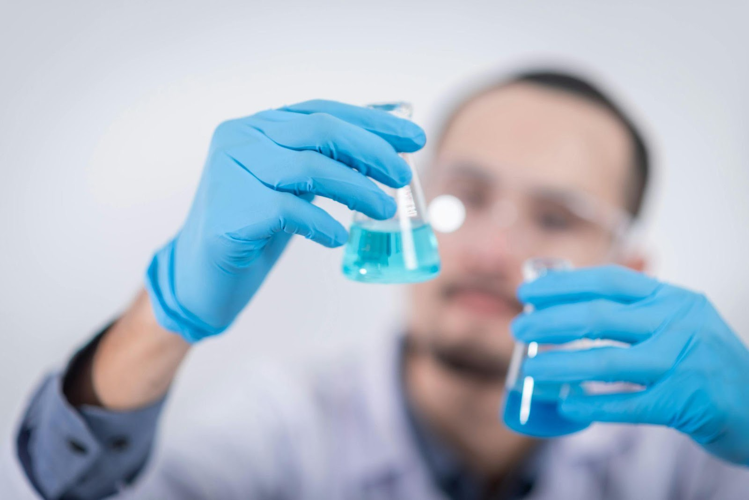Self-care is not just face masks and herbal teas anymore. It’s bigger than that now. Technology has stepped in and started reshaping how we look after our health. Some of these tools are so advanced that they sound like science fiction. But they are here already, working quietly in the background.
One of the most powerful breakthroughs is single cell sequencing. It may sound like something that belongs in a lab and not in daily life. But the truth is, this kind of tech is changing what self-care even means. It is giving us more control over our bodies. It is showing us how to take steps before problems even show up.

A New Kind of Personal Health Map
Your body is full of cells, and each one has its own story. Old methods used to study them in bulk. That meant missing out on the details. With single cell sequencing, scientists can now read each cell one at a time. That matters because no two cells are exactly alike.
For self-care, this opens up a new level of personal health insight. You are not just getting general advice anymore. You are getting data that fits your exact biology. That means the way you take care of yourself can be designed just for you.
From General Tips to Precision Wellness
Think about how health advice has always worked. Drink more water. Exercise more. Eat more greens. It is good advice, sure. But it is also one-size-fits-all. It does not take into account how your body is different from the person next to you.
Emerging biomedical tools are changing that. They allow for more precise wellness plans. They can show you how your cells respond to food. They can reveal how your body reacts to stress. They can even suggest which supplements might actually help you. This is wellness that is tailored, not generic.
Spotting Health Issues Before They Surface
One of the most exciting parts of these new tools is early detection. Your body often shows signs before you even feel sick. Traditional checkups usually catch things later, when symptoms are already there. But new biomedical technologies can pick up subtle changes in your cells much earlier.
This means self-care is not just about reacting. It is about prevention. You can spot risks and act before they turn into real problems. That is a huge shift. It makes self-care proactive instead of reactive.
The Role of Wearable Tech
Wearables are another big piece of the puzzle. Smartwatches and health trackers used to just count steps. Now they monitor heart rhythms, sleep cycles, and even oxygen levels. They connect with other biomedical tools to give you a clearer picture of your health.
When you combine this data with cellular insights, you get a powerful mix. You are not just seeing surface-level patterns. You are seeing what is happening inside your body and how it connects to your daily life. That makes self-care smarter and more personal.
Mental Health Gets a Boost Too
Self-care is not just about physical health. Mental well-being is just as important. Emerging technologies are helping here too. Brain scans, genetic tools, and even digital platforms are shedding light on how our minds work. They reveal patterns linked to stress, anxiety, or mood shifts.
That information can help design better routines for mental health. Maybe you find out how your brain reacts to certain triggers. Maybe you see how your sleep patterns affect your mood. With that kind of insight, self-care becomes more than a guessing game. It becomes a practice built on real evidence.
Making Science Part of Daily Life
The best part of all this is how accessible it is becoming. You do not have to be a scientist to benefit. These tools are moving out of labs and into homes. People can order tests, use apps, and track their health in ways that were not possible even a decade ago.
This shift is making science part of daily routines. Checking your health can be as simple as checking your messages. And the results are far more personal than before. It is a quiet transformation, but it is a powerful one.

The Future of Self-Care
We are only at the start. Biomedical technologies are getting sharper every year. They are becoming smaller, cheaper, and easier to use. Soon, self-care will mean more than following generic advice. It will mean following your own body’s roadmap.
The future of self-care looks less like guesswork and more like precision care. It looks like prevention instead of panic. It looks like tools that tell you what your body needs, not what works for the average person. That is where emerging biomedical tech is taking us. Quietly, but steadily.





(0) comments
We welcome your comments
Log In
Post a comment as Guest
Keep it Clean. Please avoid obscene, vulgar, lewd, racist or sexually-oriented language.
PLEASE TURN OFF YOUR CAPS LOCK.
Don't Threaten. Threats of harming another person will not be tolerated.
Be Truthful. Don't knowingly lie about anyone or anything.
Be Nice. No racism, sexism or any sort of -ism that is degrading to another person.
Be Proactive. Use the 'Report' link on each comment to let us know of abusive posts.
Share with Us. We'd love to hear eyewitness accounts, the history behind an article.